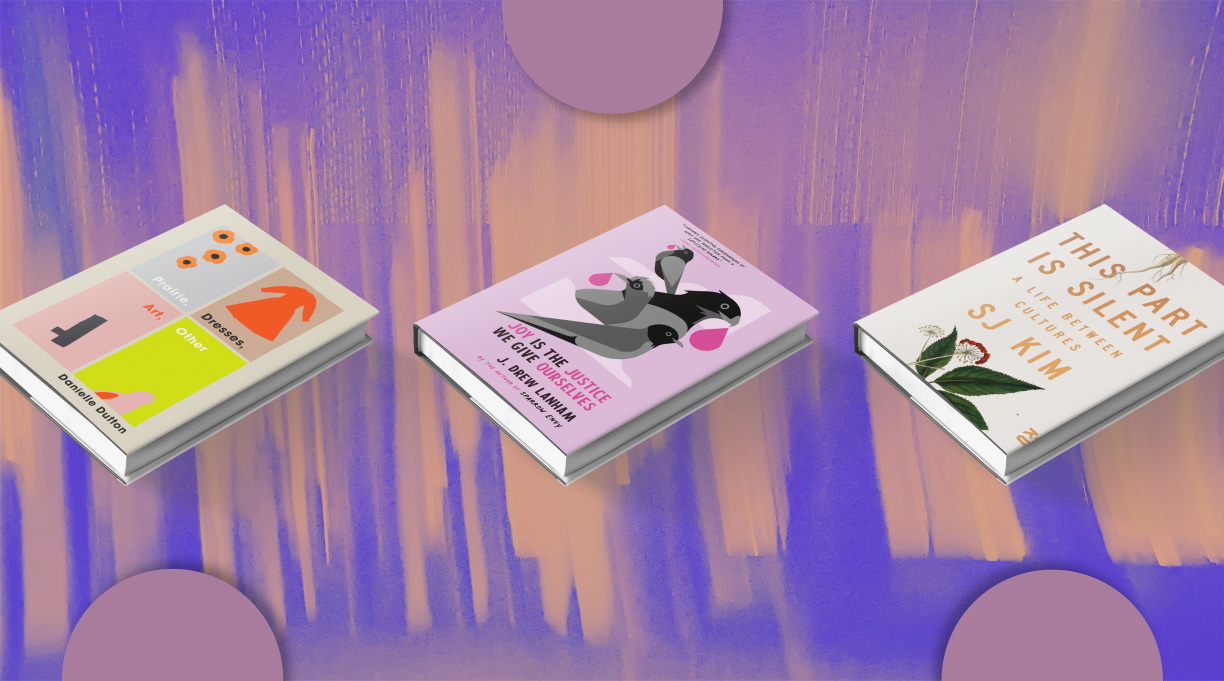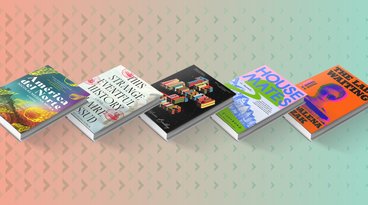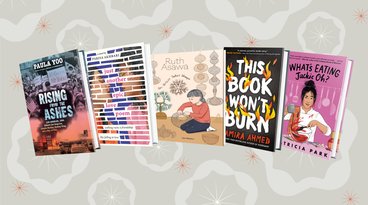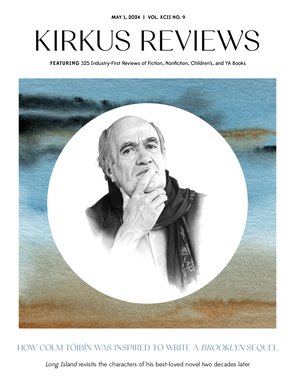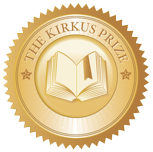One of the great joys of reading a collection is discovering an author’s distinctive style as it unfolds across a series of essays, and it’s especially enjoyable when the writer is adept in a variety of styles, tones, and structures. This April features three essay collections that display impressively dynamic, experimental approaches to the form.
First up is Joy Is the Justice We Give Ourselves (Hub City Press, April 2) by J. Drew Lanham, a poet, wildlife biologist, and author of Sparrow Envy and The Home Place. Our starred review calls his latest book “another luminous mixture of prose and poetry.” Throughout this provocative, beautifully written text, the author interweaves observations about nature with critical explorations of racism, climate change, and other significant issues of our time. Combining prose and poetry is a risky proposition, but Lanham is in full control of his lush language. “With his consistently engaging writing, keen eye, and generosity of spirit,” notes our reviewer, “Lanham is a writer to whom we should all listen closely.”
In her first collection, This Part Is Silent: A Life Between Cultures (Norton, April 16), SJ Kim fluidly intermixes elements of memoir, immigrant tale, and academic research on the Southern Gothic, with a piercing, haunting study of silence and intimacy. In a starred review, our critic writes, “The author describes exchanges between her and her Korean cousins as well as those between her and her employers and mentors in British academia, many of which offer a haunting exemplification of embedded power dynamics and racial condescension. Kim creatively and effectively experiments with format through pointed page breaks, plot points and insights hidden in footnotes, varied use of the second person, and one essay structured almost like a screenwriter’s sketch.” Equally at home within the confines of memoir writing and scholarly discourse, Kim’s narrative breaks across and beyond both, and her “quiet absences sharpen the edges of her inspection of entrenched, implied superiority and easy erasure in discussions of race and in the expectations of immigrants.” Near the end, Kim urges us to “thrive in discomfort.” She certainly does that, creating “a radically brilliant work.”
More compact but no less complex is Prairie, Dresses, Art, Other (Coffee House, April 23) by Danielle Dutton, which our reviewer calls a “shimmering and perplexing work that challenges the constraints of traditional prose.” Working in the collage tradition and experimenting with “a conceptual take on storytelling involving the ineffable feeling of a text, beyond mere words,” the author challenges readers to interpret the often puzzlelike text, whether she is writing about visual art, fashion, or the work of scholars such as Olivia Laing. “Her work is highbrow while remaining mischievously playful, reminiscent of the form-smashing thrills of writers like Lydia Davis and Anne Carson,” writes our reviewer. From hazy fragments to ekphrastic writing, Dutton “not only introduces big ideas; she shows her readers how to grapple with her lofty questions—e.g., ‘Is it wrong to want to write towards what isn’t intended to be read? What I want is a story that’s an object that can turn itself inside out.’”
Eric Liebetrau is the nonfiction editor.



